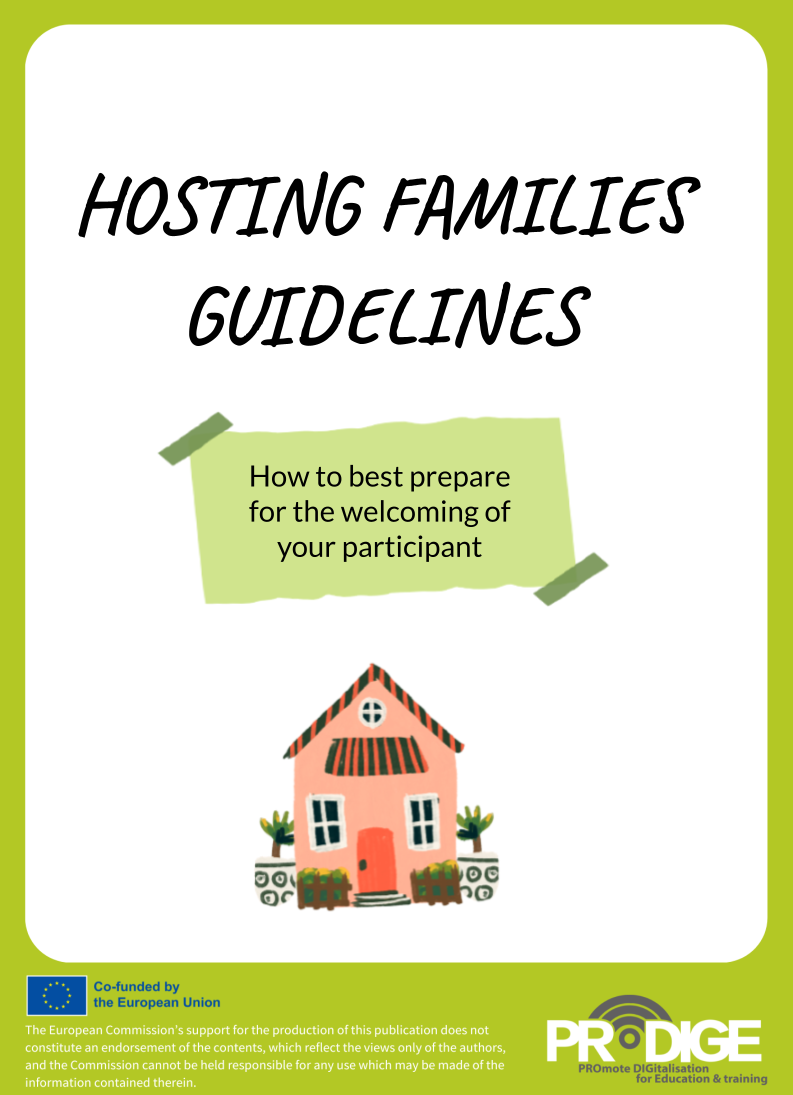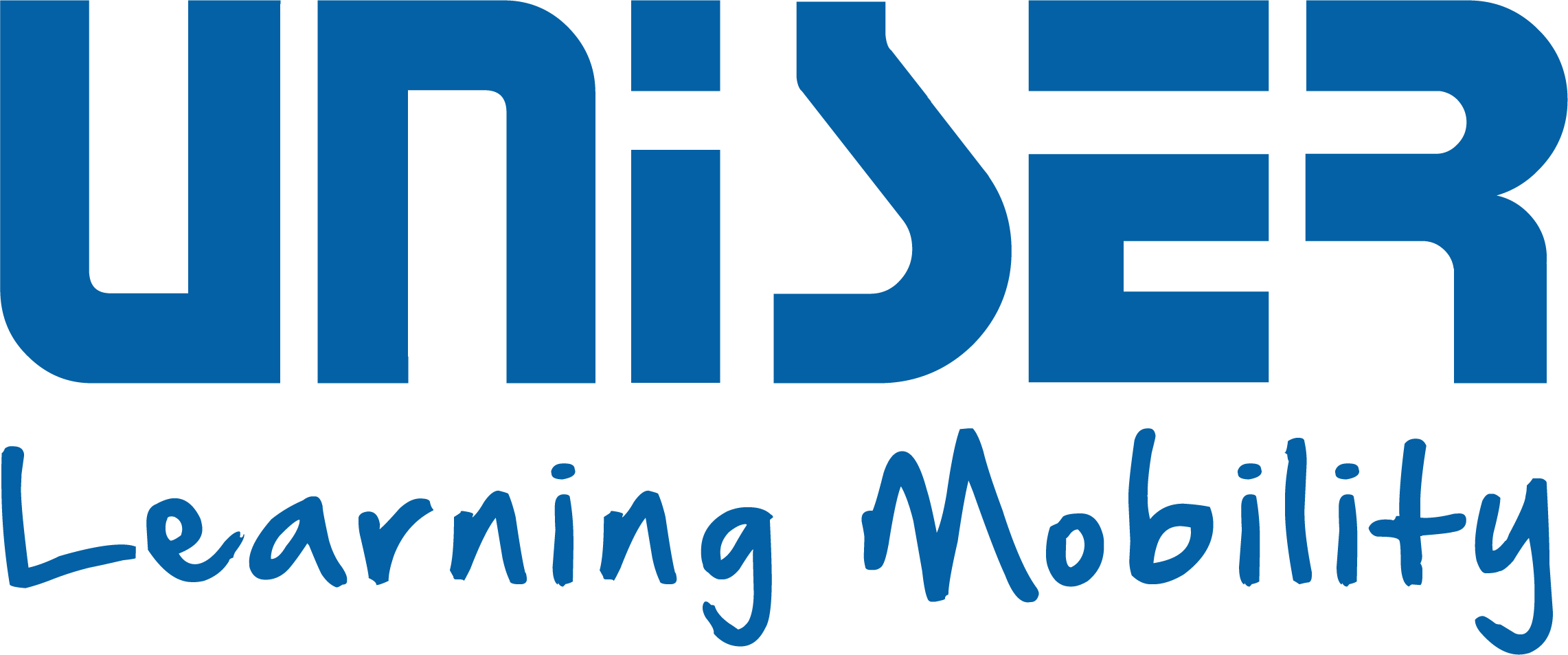Hosting a young student who comes from abroad to do an internship experience in your country is an unprecedented opportunity for growth. For the trainee, but above all for the host family.
We understand that opening your doors to someone you don’t know is never easy and we imagine that you have many doubts and questions. We have tried to summarize the most important ones in this list of Frequently Asked Questions.
If you don’t find what you are looking for here, don’t hesitate to contact us, we will try to solve all your doubts and give you all the answers you need, so that both your and the student’s experience is as constructive as possible.
Read our FAQ
- What does HOSTER mean?
- Which are the objectives of HOSTER?
- Why is HOSTER twinned with Erasmus+ project PRODIGE?
- What is PRODIGE and what’s its aim?
- How is HOSTER linked to PRODIGE?
- Why are we involving you?
- Why hosting?
- Who can be a host?
- How can I become a host?
- So how does it work?
- Should the room available be used only by the student?
- What do you mean by ‘sharing meals’?
- No one in our house speaks English well, how will we communicate?
- Who are the European students I would host?
- Can I choose who to host?
- Can I host more than one student at the same time?
- When do the students arrive and how long are they staying?
- Will I receive financial support?
- What should I do for the student?
- What should the student do for me?
What does HOSTER mean?
HOSTER has a twofold meaning. HOSTER (written in capital letters) is the name of our project that allows families and individuals to host young trainees who travel to Europe within the Erasmus+ programme. Also, a Hoster (written like this) is the person that takes part in this project and opens his/her house to the foreign student to host him/her and live an unprecedented exchange experience.
Which are the objectives of HOSTER?
HOSTER aims to offer young people from all over Europe a complete learning experience by hosting them in local homes as an alternative to hostels and student accommodation.
The project promotes a greater awareness of multiculturalism in Europe, creating opportunities for exchange between our territory and young people from all over the continent.
Why is HOSTER twinned with Erasmus+ project PRODIGE?
HOSTER was conceived by Uniser, who also piloted it in 2019 in Forlì and Bologna, Italy. Following the pandemic years, several Erasmus+ projects were approved in order to improve the mobility conditions of VET centres, allowing them to respond to new needs. PRODIGE is one of them and Uniser is one of its partners, along with Société d’Enseignement Professionnel du Rhône – SEPR (the coordinator) from France, Bezirksregierung Köln from Germany, Scuola Centrale Formazione – SCF from Italy, Institut Esteve Terradas i Illa from Spain, Luksia, Municipal Education and Training Consortium in Western Uusimaa from Finland, and MFR du Bergeracois from France.
What is PRODIGE and what’s its aim?
PRODIGE stands for PROmote DIGitalisation for Education & training and it’s a cooperation project for innovation and exchange of good practices (Key Action 2) under the Erasmus+ programme. Thanks to this project, the partners are working with the common goal of strengthening the European dimension of schools and VET centers by innovating their internationalisation strategies. The project has 3 main objectives:
- To innovate the internationalization of learning and to make digital some of the activities linked to VET learners physical mobility and to its preparation, monitoring and follow up.
- To build capacity to implement tailor made, safer and higher quality international learners’ mobility experiences enhancing cooperation between VET schools and families.
- To increase teachers’ competences to develop Internationalization at Home activities and to deal with virtual and blended mobility.
How is HOSTER linked to PRODIGE?
One way to enhance cooperation between VET schools and families is to include them in school activities such as European projects and involve them in some of their phases. More specifically, hosting foreign students at the school’s families’ houses can have several benefits:
– improved schools’ European dimension despite the current COVID19 crisis
– increased knowledge of mobility providers, families and students about how to support internationalization of learning of schools
– development of the community of families willing to support the internationalization of education
Why are we involving you?
The idea is to offer an alternative accommodation solution to students who travel to foreign European countries to do internships in local companies, within the framework of the Erasmus programme. Generally, interns stay in hostels or student residences. This type of accommodation allows them to meet locals and other foreigners, but it does not always represent a meaningful way to connect with local culture and traditions. By being hosted in families, students have a chance to speak the local language, connect with local people and get to know the hosting country’s culture better. In turn, families experience another culture and way of life.
Why hosting?
Deciding to host a foreign student can be a life changing experience, allowing you to travel across Europe without leaving your home! It is a great opportunity for you to discover new cultures, foods and lifestyles from the point of view of locals of these countries.
Hosting a European student for a few weeks means offering them an incredible perspective as it is often their first experience of being alone abroad. It will be an experience for them that will make them grow.
These connections will also be an opportunity to increase your network in Europe and have contacts everywhere, something that can be useful when you are traveling. And all this without leaving your city!
Who can be a host?
Any person, couple or family living in (or close to) one of the cities where the project is active. You should be willing to welcome a young European student for a few weeks, you should have a bedroom available and the possibility of sharing meals with your guest.
How can I become a host?
Becoming a host is very simple: you just need to fill this registration form where we will ask you some information about your house and family. We will check if requirements are met and we’ll get in touch with you. If you’re not sure you’ll be able to host but want to express your interest in this possibility, please fill in this short form and one of our staff members will be in touch.
So how does it work?
Hosts are required to share the common areas of the house and meals with the students, provide a bedroom with bed linen, guarantee access to the bathroom (private or shared), use of the washing machine and free Wi-Fi. For the hospitality of each participant, financial support is provided in proportion to the length of the stay and the provision of food.
Should the room available be used only by the student?
Yes, the bedroom must be available for the student only and it should be equipped with a bed, sheets and blankets. We also require that the guest has access to a bathroom (even shared) and the rest of the house, as well as the possibility to use the washing machine and internet.
What do you mean by ‘sharing meals’?
The students will receive breakfast and dinner according to the schedules and with the degree of autonomy or sharing that each family normally foresees. Also, according to the type of contract, families might be required to provide the students a packed lunch which they will consume either at school or in the company where they will carry out their internship.
No one in our house speaks English well, how will we communicate?
Don’t worry about your level of English, this project is also a great opportunity to improve it! You can use other communication methods such as translation applications on your phone (e.g. Google Translate). Facial expressions and gestures are also an excellent complement to spoken communication. In addition, most of our interns speak other languages that you may also speak and we always try to match students with the most suitable families for them.
Who are the European students I would host?
These students are young people, on average between 16 and 20 years old, who are following a training course (generally technical or vocational schools) in Europe. During their studies, these learners do an internship in another country as part of their vocational training. Their field of study can be of any type as the country of origin can be. For PRODIGE project, you are going to host students from Italy, France, Finland, Germany and Spain.
Can I choose who to host?
Usually you cannot, but the students are matched to families based on the details you have provided in the application form. In any case, you will be sent the general profile of the incoming student and you will be able to confirm your availability.
Can I host more than one student at the same time?
Yes, you can accommodate more than one person if you have more free rooms.
When do the students arrive and how long are they staying?
Generally, our students travel throughout the year, especially from the spring to the autumn period. On average, their mobility lasts from 2 weeks to 3 months. In any case, you will always be informed in advance of the period and length of stay for each student you agree to host.The students within PRODIGE project will be traveling either in May or in November and will stay for about a week.
Will I receive financial support?
Yes, you will receive financial support to cover the expenses of meals and accommodation provided to the student. This payment will be made automatically to the account number you provided during registration. The specific amount and terms of payment will be agreed with your local institution.
What should I do for the student?
We expect hosts to provide a room and meals for the students they host, as well as access to a washing machine, free wifi, blankets and sheets. You will also be a point of reference for them, a familiar face that they can refer to in everyday life.
What should the student do for me?
Trainees are required to respect the rules and curfew of your home, as well as to participate in the normal daily life of your family/home, in line with their internship hours and schedule.
Guidelines for hosters




